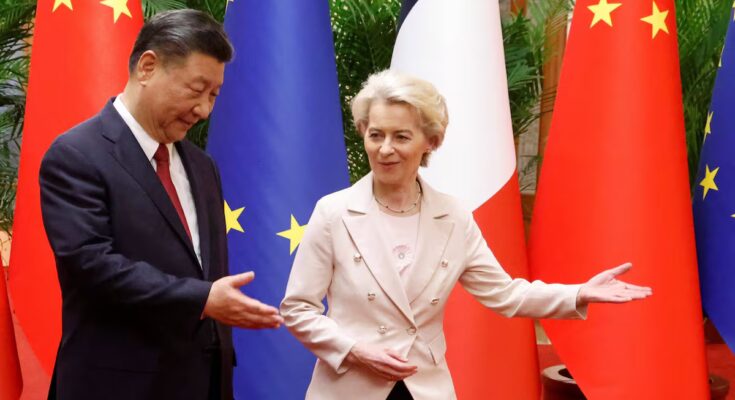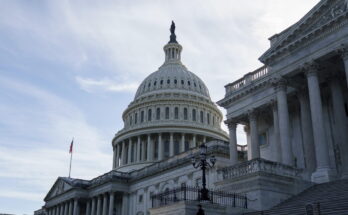China is immersed in a strategy aimed at turning the weight of its economy into political influence. It wants to play a leading role in the world of blocs that is being created, now that the United States has irreversibly shaken the geopolitical chessboard by trying to impose its own rules and attacking rivals and allies. Beijing has gone on the offensive and its president Xi Jinping is determined to use all the assets at his disposal, from raw materials to technology, investments or new multilateral institutions, to assert his power. The question is where the European Union will position itself in the new global scenario and how it will apply its rules-based model, which is the very reason for the existence of the European project.
The erosion of international balances in Donald Trump’s second term allows China to present itself as a guarantor of stability and cooperation towards a growing number of countries that feel mistreated by Washington or that directly reject the Western model. A growing bloc is also forcefully emerging that does not want to align and seeks specific alliances according to its interests. To these, China extends its hand while Trump imposes tariffs on a whim.
The last meeting between Xi and Trump, at the end of October in South Korea, confirmed the new global balance of power. Xi forced Trump to travel to Asia to hold the meeting, managed to defeat the American tariff threat with an offer on the trade of rare earths, over which he has a near monopoly, and extracted a commitment from him for a future meeting in Beijing in April. Nothing to do with Trump’s treatment of Commission President Ursula von der Leyen at her golf club in Scotland at the end of July.
The EU defines China as a partner, competitor and systemic rival at the same time, which rather than a strategy shows the lack of definition towards Beijing. Brussels is torn between the logic of the market and that of security, without finding a balance that gives coherence to its policies and the result is a fragmentation incapable of responding to the challenges. As soon as the Union declares war on Chinese steel, with cuts in import quotas and other trade barriers, it ends up tripling its purchases of steel-derived products in the form of car parts, photovoltaic panels or various machinery. The Commission, while insisting on the need to defend the automotive industry from Chinese competition, excludes the imposition of duties on those same producers because they would create trade tensions and damage European production. Likewise, it limits the participation of Chinese suppliers considered risky in its telecommunications networks, but frees up the export of semiconductors due to pressure from the European automotive industry.
The lack of definition comes at a price: Chinese imports already account for more than 50% of the European electric vehicle market, and by 2024 the EU’s total trade deficit with China will exceed $300 billion. As in other sectors, the EU does not assume that competition is no longer just commercial but existential. It risks being trapped between Chinese industrial strength and American protectionism. Either it urgently develops a geoeconomic strategy or it will be reduced to what its ideologue, Jean Monnet, feared: being a mere object of history, not its author.



